The rise of the religious far right poses a serious threat to democracy around the world, says Martyn Whittock. Will conservative Christians take heed?
Last month, thousands of protestors who refused to accept Jair Bolsonaro’s loss in the Brazilian presidential election stormed government buildings. The riot happened exactly two days after the second anniversary of a similar event, when a crowd of right-wing election deniers breached the US Capitol on 6 January 2021.
Both incidents are worrying examples of how supporters of right-wing populist politicians are refusing to accept the validity of elections they lose. They are also examples of modern radical nationalists in action.
We know from history that during periods of turbulence – economic and social stress – nationalism rises. What’s especially concerning for the Church is that many of these nationalists – who smash government buildings and show no hospitality to the immigrant – identify as Christians.
Christians support nationalist parties because THEY position themselves as supporters of traditional moral values
In Brazil, Bolsonaro has attracted support from about 60 per cent of the country’s evangelicals, according to recent estimates. He has also garnered a significant level of support from Catholics (attracting about 37 per cent of this group’s votes).
In the US, Trump notoriously enjoyed support from 81 per cent of white evangelicals in 2016. Both Bolsonaro and Trump wove strident nationalism into their brands and linked it to Christian faith. Trump’s MAGA movement (Make America Great Again) had this as a key aspect; Bolsonaro asserted: “Brazil above everything, God above all.”
It is clear that large numbers of Christians globally – in various positions along the theological spectrum – are subscribing to the ideology of Christian nationalism in one form or another. And this phenomenon is also on the rise much closer to home.
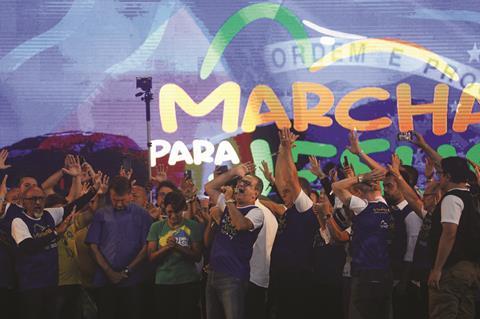
A European revolution
In France, Italy, Poland, Hungary and, most alarmingly, Russia (bloodily apparent since February 2022, when Putin ordered the invasion of Ukraine) we can see the impact of nationalism and Christianity. In many ways, what is occurring is a reversal of the cooperation and interconnectedness that characterised a generation following the second world war. This ‘cooperative period’ was largely a reaction to the aggressive nationalism that had torn the world apart during two global conflicts. It involved a commitment to shared economic and political interests to further peace and prosperity.
Since the collapse of communism in the late 1980s, this internationalist trend has been in retreat. The increasing movement of people in Europe (first workers from Eastern Europe into Western economies; later asylum seekers and economic migrants fleeing war) has accelerated nationalist responses since the millennium, often fuelled by anxieties over the impact of Islam on traditionally Christian communities.
MODERN NATIONALISM POSES A THREAT TO DEMOCRACY ITSELF
Hungary and Poland have voted in hard-right, anti-globalisation governments in recent years, which have promoted nationalist agendas. In the Netherlands, the Party for Freedom continues to attract a significant number of votes. Spain’s far-right Vox party entered a regional government for the first time, and in Italy, Giorgia Meloni, leader of the ‘Brothers of Italy’ (Fdl), a party with neo-fascist roots, became prime minister in October.
Even in Sweden – home of centre-left politics – the anti-immigration Sweden Democrats party continues to attract a consistent 20 per cent of the vote. The UK’s Brexit debates were dominated by multiple factors including arguments around national sovereignty and anxiety over immigration. For some voters, nationalist ideology certainly influenced their decision to vote leave. There is plenty of evidence to indicate that Christian voters have contributed to the nationalist surge across the European continent.
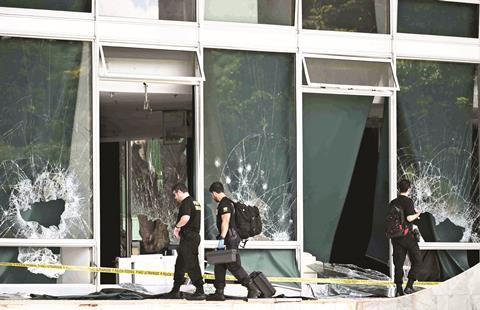
What is nationalism?
Nationalism can be hard to pin down because it exists on a spectrum. At one end, it promotes a cultural community – think Welsh and Scottish nationalism in the UK or Catalan nationalism in Spain. In these cases, a geographical community is conscious of its identity; and of wider forces which, arguably, seem a threat.
In many instances there is a shared linguistic and ethnic identity underpinning nationalism. Frequently, it is not built on where you live, but who you are and how you express this. This is identity-politics, looking to ethnicity to define yourself, rather than (for example) class or ideology.
Nation-states frequently unite around ethnic identity. Think English, German, French, Polish or Italian nationalism. This is especially so if sufficient members feel their identity is under threat. This ‘perceived threat’ can take the form of distrusted minorities within the wider community, or even supranational bodies whose remit transcends national borders but impacts on individual nations (such as the EU).
As the nationalist spectrum shades towards the far right, we find that ethnicity increasingly characterises the way the ‘national community’ is presented. Such an outlook defines itself against the ‘alien other’ and can also include antagonism towards rival nations. Most notoriously, in Germany in the 1930s and 40s, the concept of the Volksgemeinschaft could be translated as ‘people’s community’ – but really meant ‘racial community’. Antagonism towards those of a different colour, ethnicity, language or religion underpins this end of the nationalist spectrum.
The idea of racial, biological nationalism has become the predominant feature of European nationalism. Consequently, today, while of course not every nationalist is a racist, it is a sure bet that every racist is a nationalist.
An appeal to Christian values
In the first round of the 2022 French presidential election, a poll conducted by the Catholic newspaper La Croix, revealed that around 40 per cent of practising Catholics voted for one of two far-right nationalist candidates: Marine Le Pen and Éric Zemmour. This is not an isolated example.
Significant numbers of Christians in Europe now find themselves attracted to the kind of conservative politics embodied in the shift to the nationalist right. The attraction of political groups that define themselves as supporting ‘Christian values’ is revealed in explicit statements by nationalist politicians that make direct appeals to faith.
Last year, Hungary’s prime minister, Viktor Orbán, declared: “Christian democratic, conservative, patriotic politics…is the future.” Speaking at the Conservative Political Action Conference (CPAC) in Texas (a setting deeply imbued with the ideology of Trump’s MAGA movement), Orbán condemned immigration, globalism and gender fluidity. He declared there was a “battle being fought for Western civilization” and “globalists can all go to hell”. These comments came a month after he said Hungary must not become a “mixed race” country. At CPAC, Orbán also stated: “This war is a culture war. We have to revitalise our churches, our families, our universities and our community institutions.” Such appeals are specifically designed to resonate with conservative-leaning Christians.
In similar style, Italy’s former deputy prime minister, Matteo Salvini, condemned those he termed: “fanatics of uniform thinking…those wanting to eradicate Europe’s Judeo-Christian roots…those wanting to eliminate values such as the family, security and freedom.” Also in Italy, Giorgia Meloni’s FdI party has taken clear positions against immigration, abortion and the so-called ‘woke agenda’.
Italy has faced large-scale inward migration of asylum seekers and economic migrants, sparking controversial reactions from nationalist politicians. In 2019, Meloni said: “I am Giorgia, I am a woman, I am a mother, I am Italian, I am a Christian.” Similar to Orbán and Salvini, she spoke of Christianity as an integral part of her political platform. She is also on record as saying: “repatriate migrants and sink the boats that rescued them”.
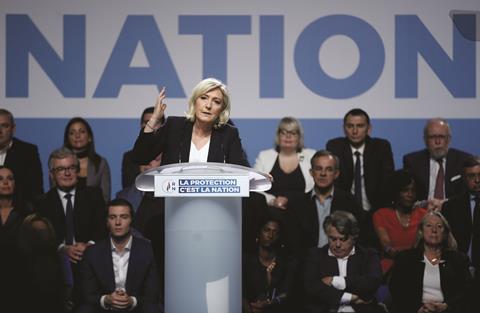
Misuse of power
Fear of liberal values is the key to understanding why millions of European Christians currently support ethno-nationalist parties and anti-establishment populism. It is because these modern nationalist parties position themselves as supporters of traditional moral, sexual, social values and behaviour. They frequently assert that their nation is particularly ‘Christian’ and that this specific characteristic is under threat from immigrants and social liberals. Many such parties are tainted with antisemitism but, sadly, many Christian communities have historically embraced this prejudice. Today, it still exists, often masked by anti-Islamic anxieties and rhetoric that many Christians find easier to live with.
Increasingly, in its most extreme forms, modern nationalism – just as it was in the 1930s – poses a threat to democracy itself. It is inclined to use power (often democratically achieved) to close down debate, marginalise minorities, curtail an independent judiciary, restrict political and press freedom, present opponents as an existential threat and use increasingly draconian powers to stay in office. If political tenure is threatened by the electoral process, supporters even threaten violence. In this, it is starkly different to traditional conservatism.
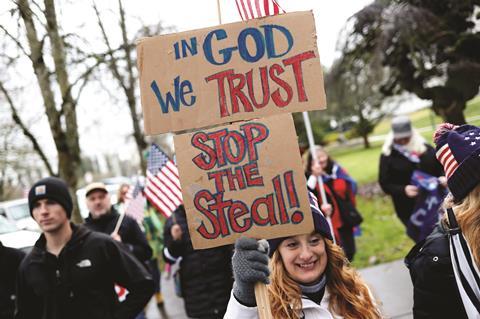
The question facing socially conservative Christians is how high a level of damage are they willing to accept – regarding democratic norms, rule of law, treatment of minorities and immigrants, conflict between nations – in order to assert what they consider to be Christian social and cultural models in societies which, in large part, do not subscribe either to the Christian faith or to these norms?
When pondering this question, it should be remembered that in the 1930s and 40s, Christians like Dietrich Bonhoeffer and Martin Niemöller, who opposed extreme ethnic nationalism, were in a tiny minority. In contrast, most European Christians at the time were prepared to support far-right nationalist parties – and live with their intolerance, aggression, violation of international cooperative rules and structures, and their explicit racism – because they believed these parties would protect Christian institutions and values. The rest, as they say, is history. And a warning.













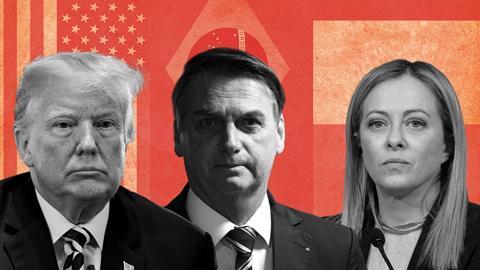



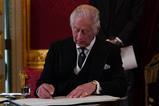





















No comments yet